Forced to trade themselves to feed their elderly parents - life in India
Categories: Asia | Culture | Lifestyle | People | Tradition | Tragedy | World
By Vika https://pictolic.com/article/forced-to-trade-themselves-to-feed-their-elderly-parents-life-in-india.htmlIf in some countries people are waiting for retirement with anticipation, knowing that they will finally get the opportunity to relax, then in other states pensioners are doomed to poverty. And this is not at all due to the lack of social policy and the opportunity to earn a pension.
6 PHOTOS
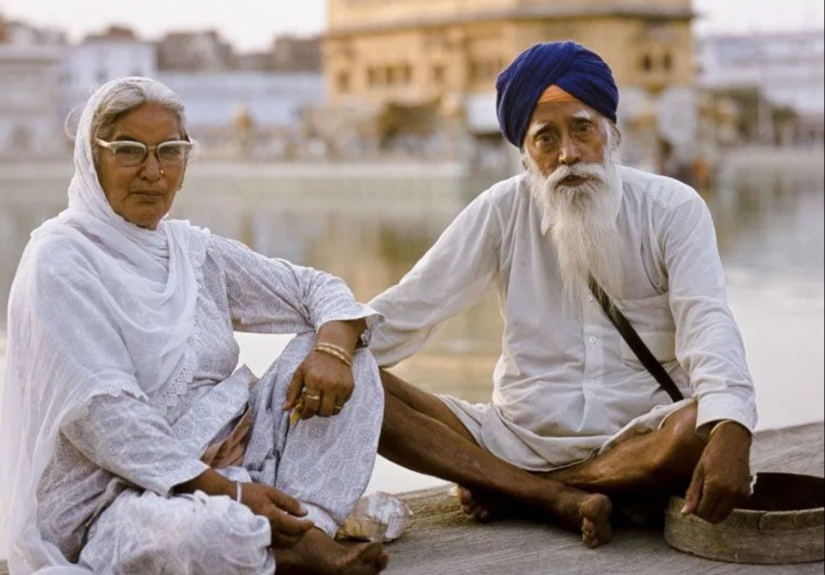
1. The reasons for each person are different, but in India, they are united by the inability to get a formal job. Most people in India are forced to work their whole lives for modest wages.
There is practically no official work in the country, and if there is, it is very difficult to find such a place. Local residents simply do not have time to choose where they want to work and where not, and there are always enough people who want good positions.
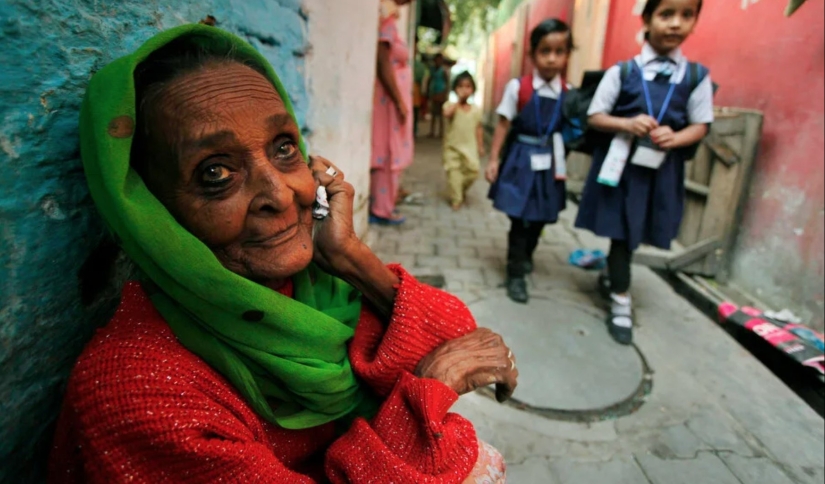
2. The average person's monthly income barely covers basic necessities. After leaving one job, they immediately get a job in another. But they still fail to save money.
The Indian pension system is designed in such a way that from the moment of employment, a person must save money for the future in one or another pension fund. Some people are lucky, and by the time they retire, they already have a decent amount of money in reserve.
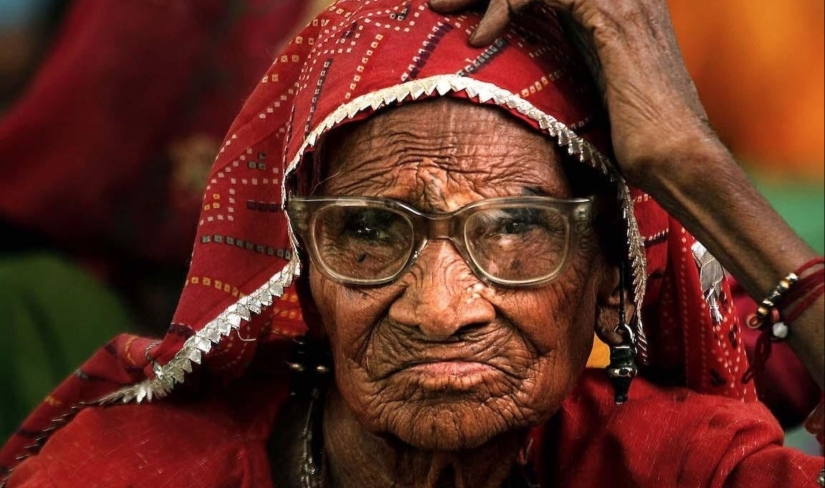
3. If a person is not lucky, and the fund does not fulfill its obligations to the person, he is left with nothing. Most Indians do not have their own savings, because they simply had nothing to save money from.
As a result, pensioners are left without a livelihood. Very often, old people are forced to live on the street and starve. Sometimes social funds and charitable organizations help them, but this assistance cannot cover all pensioners without exception. Most people are forced to cope with their financial problems on their own or turn to children for help.
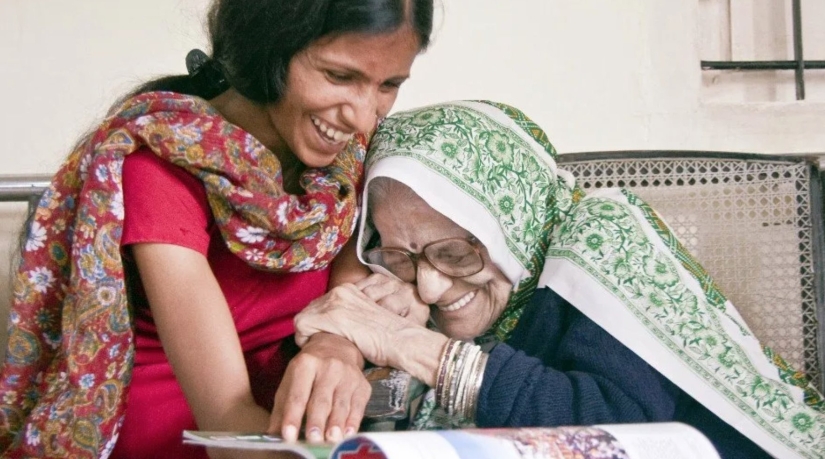
4. But since India is one of the poorest countries in the world, young people do not always have the opportunity to help their elderly parents. Young people also cannot leave them to the mercy of fate or give them to a nursing home.
This will bring great shame to the traditional family. It is customary to respect the elderly, but in most cases, this happens only in words. This is especially true for older women. It is difficult for them to find work even at a young age because the patriarchal attitudes in India are still very strong.
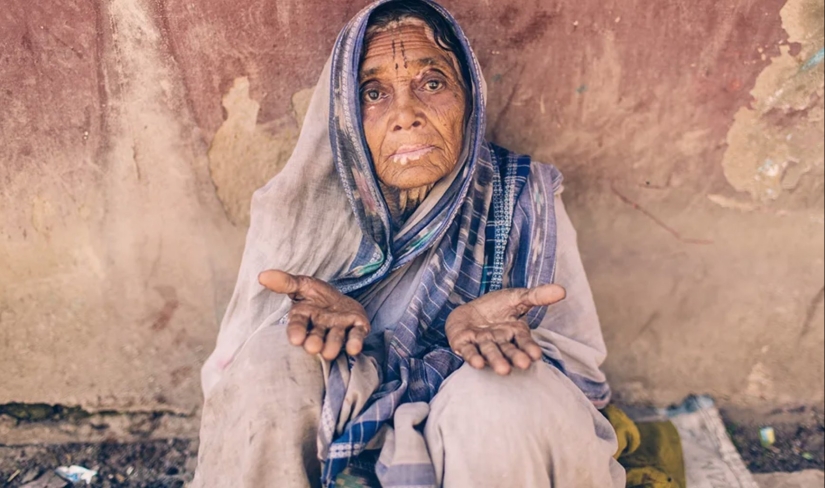
5. Because of this, millions of women are forced to accept the most unfavorable working conditions or to trade themselves. Saving for a pension in such conditions is almost impossible. Some women go to live in the city of widows, where they are provided with shelter and food. But many people still have to wander and starve.
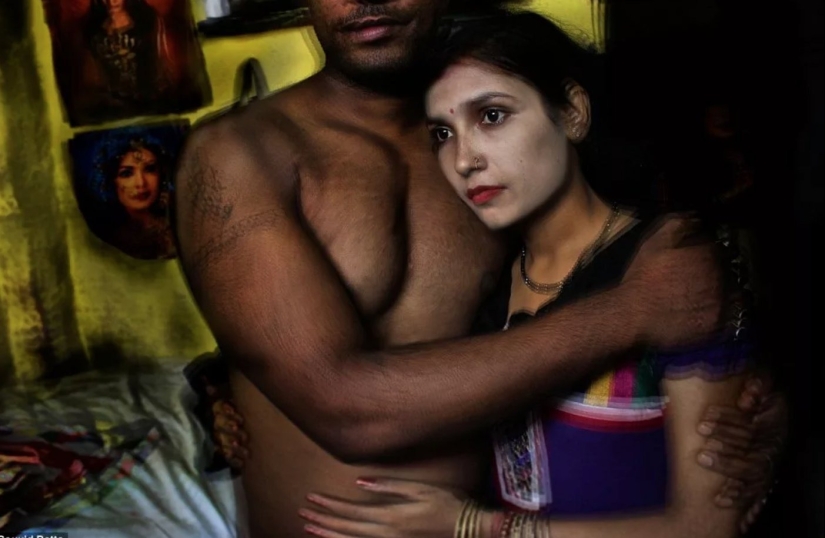
6. Pensioners in India have long resigned themselves to this fate, and young people know that there are very few prospects in the country, so if possible they try to get a good education in order to get a job in the civil service, or move to another country and arrange their lives there.
Keywords: India | Lifestyle | People | Culture | Traditions | Asia | Social policy | Human trade | Bad life
Post News ArticleRecent articles

It's high time to admit that this whole hipster idea has gone too far. The concept has become so popular that even restaurants have ...

There is a perception that people only use 10% of their brain potential. But the heroes of our review, apparently, found a way to ...
Related articles

Photographer Supernaw das was born in Calcutta, studied at the School of visual arts in new York. For his graduation project, he ...

This is an amazing photo project of Mike Harvey: it takes people in his car, and photographs them at the same time, we are about to ...

Surely, many of you had classmates who, to put it mildly, were not distinguished by outstanding external data. Braces, strange ...

New Year's is a time to surprise and delight loved ones not only with gifts but also with a unique presentation of the holiday ...